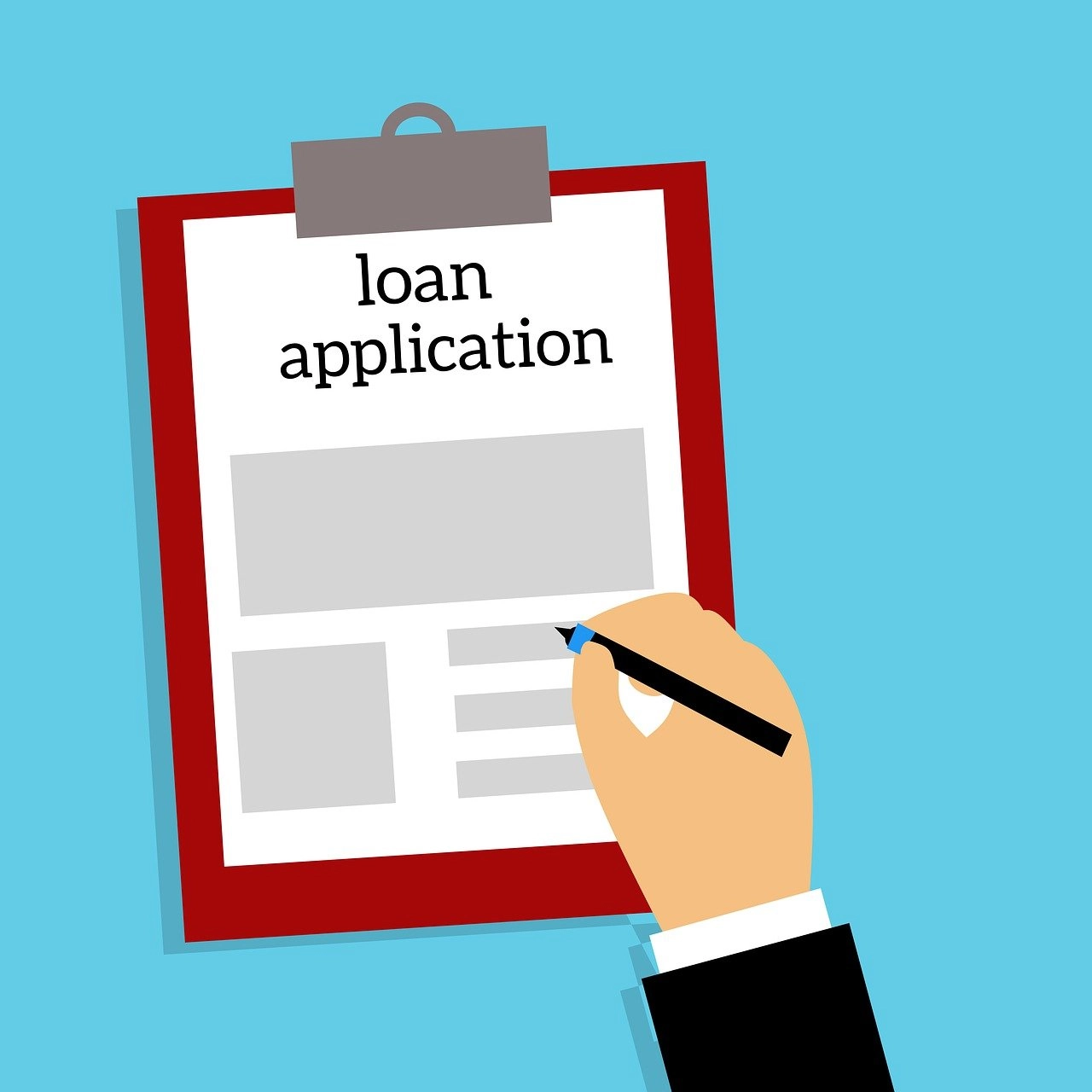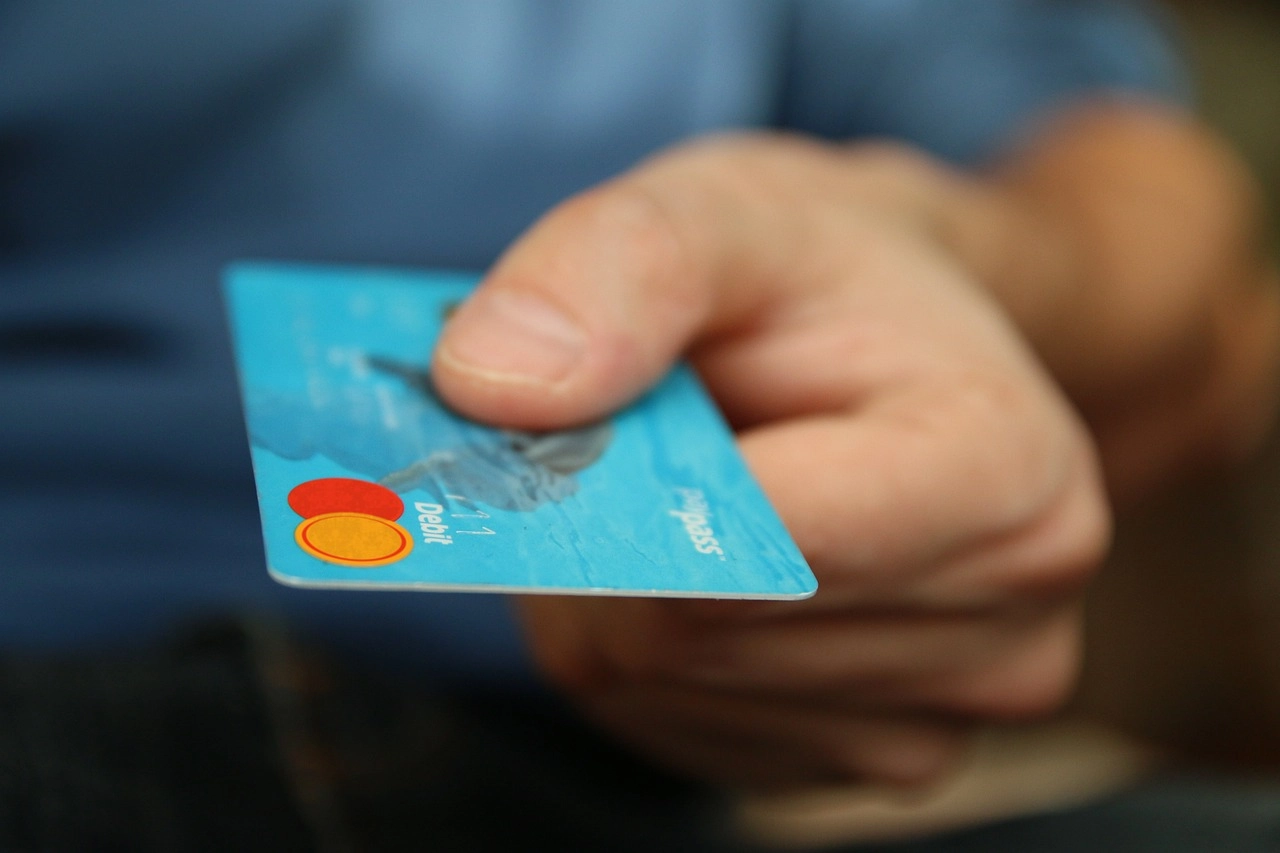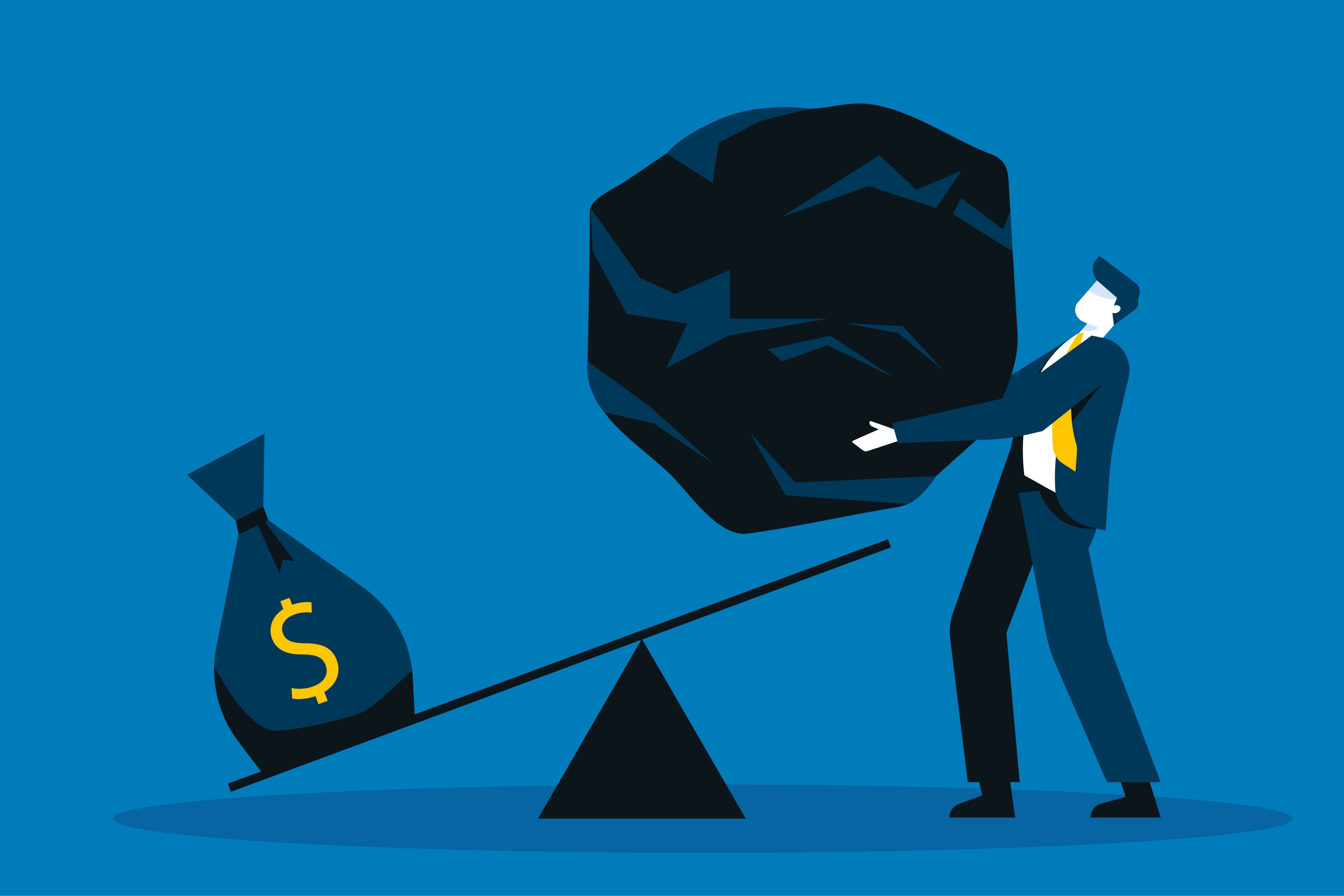How To Get A Personal Loan If You're Unemployed
Unemployment makes it difficult for many people to make ends meet, often requiring an unsecured personal loan to manage monthly payments. It can lead to a lot of stress, especially when there are bills that need to be paid quickly and sporadic loans that need to be taken out to pay those bills. In this blog post, we will discuss what personal loans are and how you can get one even if you're unemployed.
Even if it is possible to obtain a personal loan for the unemployed, doing so is not recommended because, if you can't afford the loan, you could endanger your financial stability. Additionally, it could be challenging to qualify.
That's because one of the most crucial prerequisites for personal loans is often a history of consistent income. To qualify for a loan, you may be able to use non-employment income from some lenders if you have no income.
Consider the hazards associated with borrowing money without a job, like a loan without a job, before you begin the loan application process. You should also discover how to get a personal loan if you're unemployed and how lenders evaluate loan applicants.
What Is A Personal Loan?

A personal loan is an amount of money you can borrow, often using home equity lines or co-signers, to cover expenses ranging from medical expenses to family member commitments. Among the many uses of a personal loan are debt consolidation, home improvement, and wedding planning.
You can secure a personal loan from loan application lenders such as a bank, a credit union, or an online provider offering secured loans and unsecured loans. The borrowed money must be repaid over time, usually with interest and additional fees.
What it does
You will need to fill out an application and wait for approval if you want to receive a personal loan for the unemployed; this procedure could take a few hours or days. Following approval, the lender will deposit the loan amount into your bank statements, allowing you to manage unexpected costs and other financial needs.
Additionally, you'll begin making payments right immediately. Your lender will probably inform the credit bureaus about your account behavior at various points during the loan term.
Here is a breakdown of all the components that go into making a personal loan:
-
Rates of interest On top of the loan amount, personal loan borrowers are charged a fixed APR, or annual percentage rate (or principal). Depending on your creditworthiness, income, and other criteria, this APR may change. The amount of interest borrowers will pay over the course of a personal loan is determined by the interest rate.
-
Payment due each month: For the duration of the loan, you will make a fixed monthly payment that is determined by adding the principal and interest. If you agree to repay your loan over a longer period of time, you can often get a cheaper monthly payment.
-
Repayment period: Personal loans have different repayment periods, however customers frequently have a choice of periods between one and seven years.
-
Origination fees: Some personal loans tack on an upfront origination fee to the loan's principal. Although origination costs vary, it's typical to see them reach up to 6% of your loan amount.
Are There Loans Available For The Unemployed?

Various formats of emergency loans, including payday loans and emergency loans, are available to cater to the financial situation of unemployed individuals. There are loans that can provide assistance for the acquisition of a new job, loans to get back on your feet, and loans that will allow you to go back to school.
An unemployment loan is often not just an option but rather a necessity. When you have no income coming in, loans for the unemployed can provide a much-needed temporary financial solution.
Even though it's not impossible, getting a loan if you're unemployed and have a low credit score would probably be significantly more challenging.
However, you should be prepared to manage recurring interest and potentially higher APRs when taking out personal finance products like payday loans, so you'll need to carefully consider whether this is the best option for you. Specialist lenders may occasionally give loans to customers in this situation.
Securing a copy of your credit reports is a prudent step before filling out your personal loan application, especially to assess your credit history so you can see what data creditors have on you and your credit score.
You can view your credit score with our free credit monitoring service, which also provides straightforward advice on how to raise it. Here are a few short tips to raise your score:
-
Enroll in the electoral roll, enhancing your credit profile as lenders use it to verify your identity and residence, ultimately boosting your score, which will raise your credit score right away.
-
Make any necessary corrections to your credit file. While mistakes can harm your credit rating, they are simple to remedy if you contact the lenders.
How Do I Qualify For A Personal Loan If I'm Unemployed?
Personal loans for people who are unemployed can be obtained by applying at pre-approved loan providers like NerdWallet or MyLoanCare, which have loans available for borrowers regardless of their credit score.
You can also apply for loans at banks or credit unions by finding one that offers loans to people with no income. This option can be more attractive if you're trying to save money by paying less interest.
However, it does not provide access to some of the additional benefits that other lenders offer such as flexible repayment plans or ways to modify your loan terms should circumstances change.
As an unemployed applicant, it is essential that you are prepared to provide extraordinary evidence of your ability and willingness to repay the loan in a timely manner which includes a verifiable job experience, invoices, current pay stubs, and documentation from other sources that show you are capable of returning the money.
Lenders may also consider any of the following as your sources of income:
-
Disability payments
-
Pension
-
Rental income
-
Social Security
-
Inheritance
-
Investments like annuities
-
Alimony
-
Child support
-
Regular payments from a settlement
What Is The Importance Of Credit Score When Applying For A Personal Loan?

One of the most important factors that most lenders use to determine your eligibility for a personal loan is your credit score. If you have poor or no credit, it's harder to get approved because they're less likely to believe that you will be able to pay them back.
Here are some ways to improve credit score and enhance your eligibility for personal loans, crucial for managing your personal finance:
-
Opening up new lines of credit (you can often get approved with just one good account)
-
Paying off your debts on time.
-
Getting back on the job hunt or working on your credit score.
A personal loan may be eligible for lower interest rates.
With a lower credit score, you're more likely to be offered a higher interest rate when applying for any new line of credit, making it more expensive for you to borrow money. When applying for personal loans for the unemployed, this is equally relevant.
Keep in mind that your credit score might give creditors hints about your likelihood of making full and timely repayment of loans for the unemployed. Therefore, lenders will charge consumers with lower credit scores greater interest rates since they perceive them to be "riskier" borrowers.
With a higher credit score, however, you are considered a "less risky" borrower who is more likely to repay your loan in whole and on time. As a result, lenders are more willing to provide you a loan with a reduced interest rate, which makes borrowing that money more affordable for you.
How Much Should You Borrow And Why It's Important
If you borrow too much, it can create a major financial problem. It is not recommended that people try to get loans for old credit card balances or other types of consumer debts with their new loan because this will just end up creating new debt.
If you want to buy something, save for it and pay cash in full with the purchase or get credit cards which are more manageable than loans. Loans should only be used for emergencies not as a band-aid solution to overspending.
Risks of Obtaining a Personal Loan While Unemployed

Securing a personal loan when you're unemployed comes with several potential risks:
-
Delayed Payments: If your unemployment extends throughout the loan period, you may face challenges in keeping up with monthly payments. Such delays can lead to negative entries on your credit report, affecting your future borrowing capabilities by impacting your debt to income ratio.
-
Asset Risk: Obtaining a secured loan requires collateral, which you risk losing if you default. This could involve assets tied to a home equity line or other substantial property.
-
Elevated Costs: Unemployed individuals often encounter higher borrowing costs. Lenders may impose higher upfront fees and APRs to offset the risk, particularly when offering emergency loans or payday loans. These additional debts can accumulate quickly, especially with APRs that might reach into the triple digits for payday loans.
-
Increased Fees: Being unemployed might prompt lenders to charge higher origination fees due to the increased risk of loan default. This is crucial to consider, especially if you have limited gross monthly income or are reliant on unemployment benefits or pension or retirement income.
-
Cosigner Impact: If you secure a loan with the help of a cosigner, any missed payments could adversely affect their financial standing. It's essential to consider the responsibilities and potential credit risks to your cosigner before entering such an agreement.
-
Exploring Alternatives: Should traditional borrowing avenues be closed, the allure of a payday loan might seem appealing. However, given their exorbitant costs and short repayment terms, it's advisable to tread cautiously. These loans often require repayment within two weeks and carry high APRs that can exacerbate your financial strain.
-
Lender Considerations: Third-party lenders and institutions that offer unsecured loans or personal loans while unemployed assess several factors lenders deem important, including your credit score. The higher your score, the better your chances of securing more favorable loan terms.
-
Income Sources: Lenders may accept income from diverse sources beyond traditional employment, such as spouse's income or retirement income, which can help support your loan application. This is crucial for maintaining a balance and avoiding the pitfalls of taking on a loan without a steady revenue stream.
Reasons Your Loan Could Be Denied
A personal loan can be denied for the following reasons:
-
You have an insufficient credit score, often due to a lack of excellent credit history or frequent miss payments.
-
Your unemployment has been deemed as voluntary by the lender.
-
There are other negative marks on your credit report such as collections, bankruptcy, judgments, which could include records of missed payments or late payments.
-
You have high balances on other credit cards.
-
You have a low income or insufficient income information to support your debt repayment ability, which may not demonstrate sufficient income to manage more debt.
If you're struggling to keep up with your medical expenses and other bills, call your creditors and explain your situation, as this may impact your annual income and reliable income perceptions. They may offer paused payments, deferment, forbearance, new repayment plans, or other forms of financial relief.
In Conclusion: Loans for Unemployed
It is possible to find a personal line of credit or loan that will work for you even if you are unemployed, especially if the lender approves based on disability benefits or social security benefits. However, securing a loan without reliable income means there is no "one size fits all" and they may not always have the best rates or terms.
It's important to do your research before deciding on applying for one because it can impact the amount of money you need to borrow and the interest rate you'll have to pay.
It is also important to check whether or not this type of financing like personal loans while unemployed or cash advances are available for those without traditional employment status.

